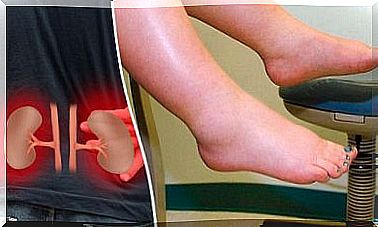Aphonia: Causes And Treatment
When aphonia is due to minor causes, such as a cold or irritation, it usually does not last longer than a week.

Aphonia is the total or partial loss of voice, or even an alteration of it, which usually ends in one of the two preceding types. Aphonia can be immediate or progressive, depending on the cause.
When aphonia is due to minor causes, like a cold or irritation, it usually doesn’t last longer than a week. However, if the cause is damage to the vocal cords, aphonia may be chronic or persistent.
Aphonia can also have other causes, such as excessive use of the voice, screaming, allergies, or gastric reflux in the throat.
In addition, this loss of voice can also be due to the consumption of tobacco and alcohol, the growth of viruses and diseases that paralyze the vocal cords. Another common cause of hearing loss is exposure to certain environmental conditions, such as air conditioning.
Treatment of aphonia
To recover the voice, irritation and inflammation of the vocal cords must be reduced. To do this, you can follow these recommendations:
Vocal rest
It is advisable to stop talking for a few days, if possible. You should also avoid coughing, clearing your throat, and breathing through your mouth.
Hydration
It is important to keep the vocal cords hydrated, try to drink at least 2 liters of water per day. This reduces the feeling of dryness in the throat. In winter, heating also dries out the vocal cords. It is advisable to keep the ambient humidity between 40-60%.
Natural remedies
Aphonia doesn’t hurt, but it’s annoying. Some of the natural remedies that you can use for its treatment are:
1. Water and lemon
Gargling with hot water and lemon juice is a very good remedy for treating aphonia. The antiseptic properties of vitamin C contained in lemon allow this saving effect.
2. Honey milk
Drinking a glass of milk with two tablespoons of honey at the start of the day and at bedtime will help soothe your throat and restore your voice.
3. Ginger with lemon or honey
Ginger root has beneficial properties on the voice and helps loosen mucus. Combining the properties of ginger with those of lemon or honey is a very effective remedy to regain the voice.
4. Propolis
It is a natural antibiotic perfect for relieving any throat condition. Propolis has antimicrobial activity against some of the bacteria and viruses that cause this disease.
Thanks to its anti-inflammatory, healing and immunostimulatory properties, propolis is a useful substance to improve and prevent throat and respiratory tract problems in general which can lead to aphonia.
5. Sage infusion
Sage is a plant that contains a large amount of mucilage, a soluble fiber that helps soften the throat. Plus, it also acts as a powerful mucus repairer, helping to soothe discomfort and irritation.
6. Licorice
This is another of the best natural aphonia remedies. It is a plant that has anti-inflammatory and expectorant properties. Therefore, licorice helps open the airways and allows aphonia to begin to heal. An infusion of licorice, taken several times a day, can solve the problem.
Pharmacological treatment
In case of aphonia and discomfort in the throat, an anti-inflammatory such as ibuprofen 400 mg can be used. You can also use lozenges with an antiseptic and sometimes anesthetic effect.
In addition, these products stimulate the production of saliva and reduce irritation. Antibiotics should never be taken to treat aphonia unless prescribed by a doctor because of a bacterial infection in the throat.
Prevention of aphonia
It is true that you cannot control all the causes of aphonia. However, you can follow certain recommendations to prevent it, such as :
- Do not shout regularly and control the volume of your voice. Likewise, avoid talking for long periods in noisy environments.
- Avoid spicy foods and alcohol consumption
- Treat allergies, colds, and digestive issues when they arise
- Do not smoke
- Drink a lot of water
- Warm up your voice and do relaxation exercises
- Exercise regularly : Exercise increases muscle tone. It helps to maintain good posture and good breathing, which are necessary for good speech.
As mentioned above, aphonia usually does not last longer than a week. If the symptoms persist longer, it is advisable to consult a specialist to prevent it from becoming chronic.









